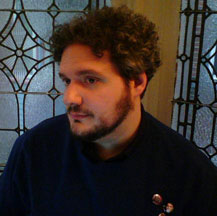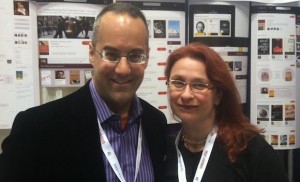Publishing Talks: David Wilk interviews Charles Bernstein and Al Filreis of PennSound
December 4, 2013 by David
Filed under Publishing History, PublishingTalks, Technology
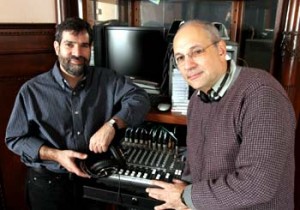 In this series of interviews, called Publishing Talks, I have been talking to book industry professionals and other smart people about the future of publishing, books, and culture. This is a period of disruption and change for all media businesses. We must wonder now, how will publishing evolve as our culture is affected by technology, climate change, population density, and the ebb and flow of civilization and economics?
In this series of interviews, called Publishing Talks, I have been talking to book industry professionals and other smart people about the future of publishing, books, and culture. This is a period of disruption and change for all media businesses. We must wonder now, how will publishing evolve as our culture is affected by technology, climate change, population density, and the ebb and flow of civilization and economics?
It’s my hope that these conversations can help us understand the outlines of what is happening in publishing and writing, and how we might ourselves interact with and influence the future of publishing as it unfolds.
PennSound is a very special online resource that was instigated by founders Al Filreis and Charles Bernstein with the incredible support of the University of Pennsylvania in Philadelphia. There is really nothing like it in the world, and for anyone interested in poetry, poetics, or the literary world of the past 100 years, it is an incredibly important resource. The energy and dedication that has gone into this unmatched collection of recordings of poets reading, lecturing and talking about poetry is a gift whose impact will be felt for many years to come.
Filreis wears many hats – he is Kelly Professor at UPenn, Director, Center for Programs in Contemporary Writing, Co-Director, PennSound, Publisher of the literary magazine Jacket2 as well as Faculty Director, Kelly Writers House. In addition, he is the author of a number of books of criticism. Charles Bernstein, an old friend of mine, is one of the most important poets and critical thinkers of his generation of writers. He was the David Gray Professor of Poetry and Letters at the SUNY Buffalo and Director of the Poetics Program, which he co-founded with poet Robert Creeley. At SUNY, he co-founded the Electronic Poetry Center with Loss Glazier. Charles is currently the Donald T. Regan Professor of English and Comparative Literature at the University Pennsylvania. He was a co-founder also of the important literary magazine L-A-N-G-U-A-G-E and is the author of many books of poetry and theoretical writings about poetry, language and thinking. Also in this discussion is Michael Hennessey, the editor of PennSound, and author of the “PennSound Daily” column. Michael holds an MFA in Creative Writing from Emerson College and has published critical work in magazines and anthologies.
I wanted to talk to Filreis, Bernstein and Hennessey about how PennSound came into being, to learn more about its scope and breadth, and to hear first hand their plans for the future. My hope is that our discussion will draw as much attention and support to PennSound as possible. And I can’t help enjoying the appropriateness of presenting an audio experience of this essential audio resource. There is something new and compelling posted at PennSound almost every day. Please visit, spend some time, and enjoy the rich trove of poetry as spoken and discussed by the poets themselves.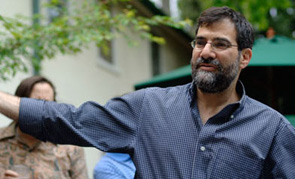 Even those who don’t read or even like poetry have their minds changed by the experience of hearing the words out loud.
Even those who don’t read or even like poetry have their minds changed by the experience of hearing the words out loud.
Podcast: Play in new window | Download
Publishing Talks: David Wilk interviews Eugene Schwartz
June 9, 2013 by David
Filed under Ebooks and Digital Publishing, Publishing History, PublishingTalks, Technology, The Future
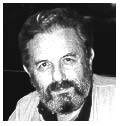 In this series of interviews, called Publishing Talks, I have been talking to book industry professionals and other smart people about the future of publishing, books, and culture. This is a period of disruption and change for all media businesses. We must wonder now, how will publishing evolve as our culture is affected by technology, climate change, population density, and the ebb and flow of civilization and economics?
In this series of interviews, called Publishing Talks, I have been talking to book industry professionals and other smart people about the future of publishing, books, and culture. This is a period of disruption and change for all media businesses. We must wonder now, how will publishing evolve as our culture is affected by technology, climate change, population density, and the ebb and flow of civilization and economics?
I hope these Publishing Talks conversations can help us understand the outlines of what is happening in the publishing industry, and how we might ourselves interact with and influence the future of publishing as it unfolds.
These interviews give people in and around the book business a chance to talk openly about ideas and concerns that are often only talked about “around the water cooler,” at industry conventions and events, and in emails between friends and they give people inside and outside the book industry a chance to hear first hand some of the most interesting and challenging thoughts, ideas and concepts being discussed by people in the book business.
Gene Schwartz has been an active participant in the publishing business for many years. I first knew him as the ubiquitous representative of the magazine Foreword, covering every possible book and technology event for the benefit of independent publishers. He still works as editor at large of Foreword Reviews. He is an industry observer, an occasional blogger and columnist for Book Business magazine, a member of its editorial advisory board and its Publishing Business Conference and Expo Advisory Board. He heads his own publishing consultancy, Consortium House, and is currently engaged in new business development projects for Waterside Productions, He is also notably co-founder of Worthy Shorts Inc., an innovative online private press and publication service for professionals , publishers and associations
In an earlier career, he was in the printing business, directed production at Random House and CRM Books/Psychology Today and was director of production and operations for Prentice-Hall/Goodyear. He is a former PMA (IBPA) board member and founder of the San Diego Publishers Group.
Schwartz has a civil engineering degree from CCNY and completed graduate course work in public administration at NYU, so like many of us in the publishing business, he came to this business from a very different background.
I thought it would be valuable to talk to Gene about publishing, past, present, and future, since he has been involved in so many different aspects of the business over such a long period of time. He is consistently perceptive about the way technology and change can be harnessed by publishers and others in the book business, and has a terrifically tuned critical sensibility that he can bring to bear on any subject. We had a great talk and covered a wide range of subjects in this interview.
Podcast: Play in new window | Download
Publishing Talks: David Wilk interviews Thomas Schinabeck
May 5, 2013 by David
Filed under Ebooks and Digital Publishing, PublishingTalks, Technology, The Future
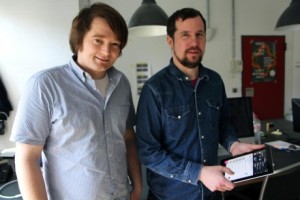 In this series of interviews, called Publishing Talks, I have been talking to book industry professionals and other smart people about the future of publishing, books, and culture. This is a period of disruption and change for all media businesses. We must wonder now, how will publishing evolve as our culture is affected by technology, climate change, population density, and the ebb and flow of civilization and economics?
In this series of interviews, called Publishing Talks, I have been talking to book industry professionals and other smart people about the future of publishing, books, and culture. This is a period of disruption and change for all media businesses. We must wonder now, how will publishing evolve as our culture is affected by technology, climate change, population density, and the ebb and flow of civilization and economics?
I hope these Publishing Talks conversations can help us understand the outlines of what is happening in the publishing industry, and how we might ourselves interact with and influence the future of publishing as it unfolds.
These interviews give people in and around the book business a chance to talk openly about ideas and concerns that are often only talked about “around the water cooler,” at industry conventions and events, and in emails between friends and they give people inside and outside the book industry a chance to hear first hand some of the most interesting and challenging thoughts, ideas and concepts being discussed by people in the book business. They also provide an opportunity to hear what all kinds of leaders and participants in publishing have to say about the communication between writers and readers through the particular lenses of their own experiences.
We’re far enough along in the development of ebooks and digital reading for numbers of individuals and companies to be interested in developing new ways to package and present text in ways that differ from those that developed over the last few hundred years of analog “real world” print publishing. Applications like Flipboard, Instapaper, Pocket, and Readability all allow readers to curate their own reading experiences by “clipping” articles and stories on the web, and saving them into reading software that makes both a better reading experience on your tablet than websites on laptops or desktops allow, and enables reading at leisure in a self controlled context. And sites like Social Reader from the Washington Post enables sharing and finding web content through existing social networks.
Dotdotdot, a new application now in beta, developed by Thomas Schinabeck and friends in Berlin is similar in shape, but goes farther, I think, to enable readers to have much finer controls over their e-reading experiences. Dotdotdot allows me to upload my own epubs as well as content I have discovered on the web, or that friends may have sent me. The site is socially enabled, so that members of the community can choose to share their own and follow what other users are reading. Annotation also adds to the reading and sharing experience – marginalia is fully integrated into the dotdotdot experience, so it is a truly social reading platform. And its archive capability allows readers to use dotdotdot as a repository – independent of devices or the closed ecosystems that e-readers create. And dotdotdot, unlike all the other content aggregating programs I have seen, is designed around long form reading.
“We thought if we find a technical solution for how we can import texts into a platform that the user already has, we can provide all the stuff on top of it that makes a great user experience, and also uses the full potential of digital text,” Schinabeck said in an article about dotdotdot on Pando Daily in January 2013 (now a bit out of date, but still a great description of the site).
Thomas and I had a terrific conversation in March 2013 both about the program he and his partners have created, as well as exploring some of the philosophical and technological underpinnings that drove the establishment and development of what I think is a really compelling new offering. The partners behind dotdotdot have paid alot of attention to what readers want and will benefit from in digital reading environments, and have really thought long and hard about how to support a worldwide community of readers. I’ve been using dotdotdot and find it to be an elegant and compelling experience for reading digital texts, interacting with them, and sharing in ways not provided by any other reading experience, an exciting approach to using the web to broaden the experience of text.
Thomas has a masters degree and part of a PhD in digital media studies, and worked for the record label BMG and was a brand manager at MTV Networks in Europe. His interesting personal website it here.
Note, dotdotdot is still very new, in development and not fully realized yet. Right now it works with DRM-free epubs, as well as HTML web content, and is mainly aimed at iPads and iPhones (and a browser add-on is available for most available browsers). New features are being added regularly.
Podcast: Play in new window | Download
Publishing Talks: David Wilk interviews Glenn Nano
April 6, 2013 by David
Filed under Ebooks and Digital Publishing, PublishingTalks, Technology, The Future
 In this series of interviews, called Publishing Talks, I have been having conversations with both book industry professionals and others with interesting perspectives about the future of publishing, books, and culture. This is a period of disruption and change for all media businesses. We must wonder now, how will publishing evolve as our culture is affected by technology, climate change, population density, and the ebb and flow of civilization and economics?
In this series of interviews, called Publishing Talks, I have been having conversations with both book industry professionals and others with interesting perspectives about the future of publishing, books, and culture. This is a period of disruption and change for all media businesses. We must wonder now, how will publishing evolve as our culture is affected by technology, climate change, population density, and the ebb and flow of civilization and economics?
I hope these Publishing Talks conversations can help us understand the outlines of what is happening in, around and to the publishing industry, and how we might ourselves interact with and influence the future of publishing and culture as our interesting present unfolds into the future.
These interviews give people in and around the book business a chance to talk openly about ideas and concerns that are often only talked about “around the water cooler,” at industry conventions and events, and in emails between friends and they give people inside and outside the book industry a chance to hear first hand some of the most interesting and challenging thoughts, ideas and concepts being discussed by people in the book business.
Glenn Nano is a truly amazing guy I ran across first when he founded Code Meet Print, a “community at the intersection of texts + technology that will contemplate, define, and help build better interfaces for engagement, more relevant curators for discovery, and more useful marketplaces for dissemination of great writing and content to eager readers.” And at Tools of Change this year in New York, I had the pleasure of moderating a panel called “Beyond Devices: Is The Real Value of eBooks Social Engagement?” on which Glenn appeared, and impressed me with his incisive and original thinking.
Evidently, Glenn is a serial entrepreneur who brings great ideas into being, or spurs them forward. Aside from CodeMeetPrint, he also created Dictator Goods (you have to visit this site), was a principal at Centurion Venture Partners, and most recently engineered a very interesting start up called AnswerQi (“tech answers from real experts in real-time”, which I think is taking up most of his abundant energy for the moment.
As Glenn wrote in the introduction to Code Meet Print: “Words are finding new modalities, and innovators across disciplines have begun to experiment with how technology might improve their creation, curation, and consumption.” This sums up very nicely what so many people involved in writing, publishing and reading are trying to understand right now.
I am very pleased to have had the opportunity to talk with Glenn about his views of the current state of publishing, storytelling and writing, and his views about where we are headed. I think you will find this conversation to be among the most interesting on these now well-worn subjects that you will hear or read. Glenn thinks about the digital present in a way that I think alot of people whose roots are in traditional publishing simply do not natively understand. So there is always something for us to learn from what he has to say.
Alert to listeners, we were having alot of fun talking, so this interview runs longer than usual at 46 minutes. 
Podcast: Play in new window | Download
Publishing Talks: David Wilk interviews Andy Doe
March 6, 2013 by David
Filed under Ebooks and Digital Publishing, PublishingTalks, Technology, The Future
 In this series of interviews, called Publishing Talks, I have been talking to book industry professionals and other smart people about the future of publishing, books, and culture. This is a period of disruption and change for all media businesses. We must wonder now, how will publishing evolve as our culture is affected by technology, climate change, population density, and the ebb and flow of civilization and economics?
In this series of interviews, called Publishing Talks, I have been talking to book industry professionals and other smart people about the future of publishing, books, and culture. This is a period of disruption and change for all media businesses. We must wonder now, how will publishing evolve as our culture is affected by technology, climate change, population density, and the ebb and flow of civilization and economics?
I hope these Publishing Talks conversations can help us understand the outlines of what is happening in the publishing industry, and how we might ourselves interact with and influence the future of publishing as it unfolds.
These interviews give people in and around the book business a chance to talk openly about ideas and concerns that are often only talked about “around the water cooler,” at industry conventions and events, and in emails between friends and they give people inside and outside the book industry a chance to hear first hand some of the most interesting and challenging thoughts, ideas and concepts being discussed by people in the book business.
I discovered Andy Doe’s writing quite by accident, and a happy accident that was. UK based, Andy comes from the music business. Most recently, he was the COO at classical music label Naxos from 2010-2012, and was head of classical music at iTunes from 2004-2010; now he freelances to help artists, labels and other organizations on recording and marketing activity, both on and offline. He also blogs brilliantly and with a great sense of humor at Proper Discord.
A piece he posted in November, 2012 caught my attention and is one I highly recommend to anyone interested in physical and digital media; it’s called What is Going on with the Record Industry (at New Music Box, a very cool site about new music). It’s a list of ten observations with explications of each. The first one is called “Almost everything you read about the state of the record industry is, at best, totally useless,” which should give you a good idea of where Andy is coming from and where this piece might be headed.
Naturally, I thought it would be fun to talk to Andy about his thinking about the record business and to draw him out on how what has happened and is happening in that industry might apply (or not apply) to the book business. We do tend to think that all entertainment media businesses, including books, music, television, radio, film, video games and even newspapers have similar enough structures and relationships between physical and digital media, as well as similar disruptive innovations as to make the experiences in one useful to the those who work in other creative industries. So we talked about that a bit, as well as how some of what Andy has observed and learned in the music business may not be relevant to book publishing. Overall, because he is such a smart and witty guy, I think this conversation should be of particular interest. As has happened recently, when discussions have been going well, we have gone a bit longer than podcasts usually go. This one is 47 minutes.
Another good reference point I should mention – here’s a written interview with Andy Doe by Tom Manoff you might enjoy as well.
And oh, by the way, this is the 200th interview I have posted on Writerscast since its inception just a few years ago. I’d like to thank all the wonderful writers, technologists and thinkers who have been willing to give me some of their valuable time to pepper them with questions and engage them in my enthusiasms and interests. And I’d also like to thank the individuals who have helped make this project work, my daughter, Emma Wilk, for editing my often poor efforts at recording, website builder and podcast expert Rob Simon of Burst Marketing, and his web guru, Jeremy Brieske.
And in particular I owe thanks to all of you who have listened and responded to this humble effort to contribute to the cultural and intellectual good of all. 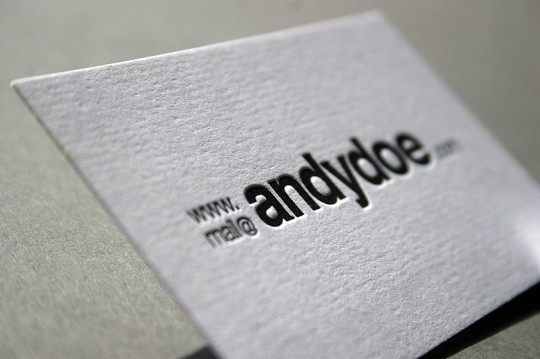
Podcast: Play in new window | Download
Publishing Talks: David Wilk interviews Ishmael Reed
January 31, 2013 by David
Filed under Ebooks and Digital Publishing, Publishing History, PublishingTalks, The Future
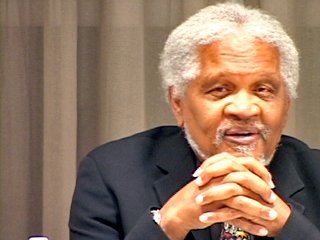 In this series of interviews, called Publishing Talks, I have been talking to book industry professionals and other smart people about the future of publishing, books, and culture. This is a period of disruption and change for all media businesses. We must wonder now, how will publishing evolve as our culture is affected by technology, climate change, population density, and the ebb and flow of civilization and economics?
In this series of interviews, called Publishing Talks, I have been talking to book industry professionals and other smart people about the future of publishing, books, and culture. This is a period of disruption and change for all media businesses. We must wonder now, how will publishing evolve as our culture is affected by technology, climate change, population density, and the ebb and flow of civilization and economics?
I hope these Publishing Talks conversations can help us understand the outlines of what is happening in the publishing industry, and how we might ourselves interact with and influence the future of publishing as it unfolds.
These interviews give people in and around the book business a chance to talk openly about ideas and concerns that are often only talked about “around the water cooler,” at industry conventions and events, and in emails between friends and they give people inside and outside the book industry a chance to hear first hand some of the most interesting and challenging thoughts, ideas and concepts being discussed by people in the book business.
Ishmael Reed is not only one of my favorite writers (fiction, poetry, theater and a wide range of nonfiction), he is an editor, publisher, literary activist and one of the founders of the Before Columbus Foundation, which has sponsored the American Book Awards since 1980. His latest publishing venture is Ishmael Reed Publishing Company, sponsoring the work of a diverse set of writers from many continents, including an online magazine, Konch. He blogs for the San Francisco Chronicle at www.sfgate.com.
His own books include the now classic Yellow Back Radio Brokedown, Mumbo Jumbo, The Freelance Pallbearers (a book I like to re-read at least once every five years), Flight to Canada as well as an amazing number of collections of essays, plays and poems, and recently, Powwow: Charting the Fault Lines in the American Experience, an anthology he co-edited with Carla Blank. Forthcoming books include The Fighter and the Writer: Two American Stories (Random House), and Brawls, a new collection of Ishmael’s always provocative and on point essays. Ishmael Reed is a massively prolific writer in a wide range of forms.
You can read a complete biography of Ishmael here. It’s pretty impressive, but listen to this interview I did with him to get a real sense of what he has done to support and promote the full breadth of writing and creativity in this country (and around the world). Ishmael Reed gives voice to the heart and soul of the river of creativity that flows out of and through the great American continent, and never fails to tell truth to power, expose alternative views of accepted wisdom, and makes us think long and hard about who we really are.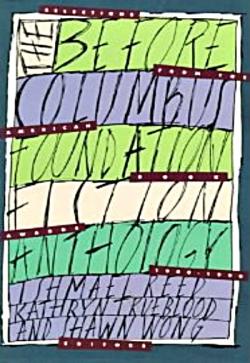 This conversation covers a wide range of topics, and includes much about the history of independent publishing in the last several decades, and much more.
This conversation covers a wide range of topics, and includes much about the history of independent publishing in the last several decades, and much more.
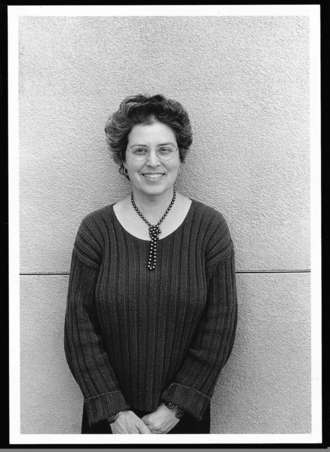 A guest appearance by editor, writer and professor Carla Blank near the end of our talk.
A guest appearance by editor, writer and professor Carla Blank near the end of our talk.
Carla Blank
Podcast: Play in new window | Download
Publishing Talks: David Wilk interviews CLMP Director Jeffrey Lependorf
December 20, 2012 by David
Filed under Ebooks and Digital Publishing, Publishing History, PublishingTalks, The Future
 In this series of interviews, called Publishing Talks, I have been talking to book industry professionals and other smart people about the future of publishing, books, and culture. This is a period of disruption and change for all media businesses. We must wonder now, how will publishing evolve as our culture is affected by technology, climate change, population density, and the ebb and flow of civilization and economics?
In this series of interviews, called Publishing Talks, I have been talking to book industry professionals and other smart people about the future of publishing, books, and culture. This is a period of disruption and change for all media businesses. We must wonder now, how will publishing evolve as our culture is affected by technology, climate change, population density, and the ebb and flow of civilization and economics?
I hope these Publishing Talks conversations can help us understand the outlines of what is happening in the publishing industry, and how we might ourselves interact with and influence the future of publishing as it unfolds.
These interviews give people in and around the book business a chance to talk openly about ideas and concerns that are often only talked about “around the water cooler,” at industry conventions and events, and in emails between friends and they give people inside and outside the book industry a chance to hear first hand some of the most interesting and challenging thoughts, ideas and concepts being discussed by people in the book business.
Jeffrey Lependorf has an unusual perspective on publishing. He is the Executive Director of two nonprofit organizations: both the New York City based Council of Literary Magazines (CLMP) and the Berkeley, California based Small Press Distribution (SPD). CLMP provides support services to and advocacy for literary magazines and independent literary presses, while SPD provides distribution and sales services to the same general constituency (though not always the same presses and magazines). Both organizations have been on the scene for many, many years and their identities and services have changed significantly over time.
While the overall publishing industry has undergone sea changes in physical retailing and wholesaling that have created challenges for commercial publishers, those changes have caused massive disruption for hundreds of smaller literary presses and magazines, mostly by reducing their retail viability and forcing them to look for other means of reaching readers, including innovative approaches to digital publishing and direct to consumer sales. Independent presses and magazines may be quietly creating some incredibly valuable and interesting approaches to connecting with readers that could provide long lasting benefits for them, and models for larger publishers to emulate.
In this conversation, I took advantage of Lependorf’s unique perspective to discuss the past, present and future of independent literary publishing, both books and magazines, as well as some of the digital initiatives they have undertaken, and the specific activities of both the organizations he operates. It’s worth visiting both the CLMP and SPD websites. If you’re interested in what independent publishers are doing, CLMP has alot of information; if you’d like to see the books and magazines (and ebooks) that independent publishers are producing, visit SPD, where, it is important to note, you can browse and buy thousands of unusual and important publications directly (even though they also distribute to retailers like Amazon, B&N and many independent bookstores). Support independent literary publishing by buying their books whenever you can.
By the way, Lependorf has another career as a composer and performer whose work I also admire. Amazing stuff from an amazing person!
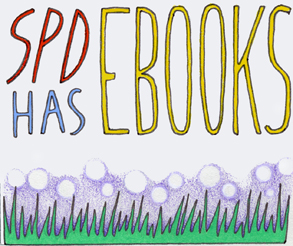 ALERT: this is another relatively long podcast, just over 43 minutes, but I believe it’s well worth your time.
ALERT: this is another relatively long podcast, just over 43 minutes, but I believe it’s well worth your time.
Podcast: Play in new window | Download
Publishing Talks: David Wilk interviews Coffee House Press Founder Allan Kornblum
December 5, 2012 by David
Filed under Publishing History, PublishingTalks
 In this series of interviews, called Publishing Talks, I talk to book industry professionals and other smart people about the future of publishing, books, and culture. This is a period of disruption and change for all media businesses. How will publishing evolve as our culture is affected by technology, climate change, population density, and the ebb and flow of civilization and economics?
In this series of interviews, called Publishing Talks, I talk to book industry professionals and other smart people about the future of publishing, books, and culture. This is a period of disruption and change for all media businesses. How will publishing evolve as our culture is affected by technology, climate change, population density, and the ebb and flow of civilization and economics?
I hope these Publishing Talks conversations will help us better understand the outlines of what is happening in publishing, books and reading culture, and how we can ourselves both understand and influence the future of books and reading. Over the past couple of years, I’ve been talking to a wide variety of people in the book business, mostly about the future of writing, publishing, and reading. But the future is always built on what has gone before now. And there has been so much incredibly creative and wonderful publishing work done in recent years, I’ve wanted to share some of the experiences of people who have accomplished so much, with vision, talent and amazing effort.
I’ve known Allan Kornblum, founder of Coffee House Press (and its predecessor, Toothpaste Press), a long, long time. He and I started out in publishing in similar ways and around the same time, the early 1970s. Allan started out as many of us did in those days publishing a handmade mimeo magazine. But he discovered fine printing by taking classes at the University of Iowa with the renowned Harry Duncan (Cummington Press – there is a great interview with him in a wonderful book called Against the Grain, interviews with independent publishers, you can access this book online through Project Muse). Allan’s Toothpaste Press used letterpress printing to create beautiful poetry books and chapbooks for ten years beginning in 1973, when Allan and his wife Cinda lived in West Branch, Iowa (home of Herbert Hoover).
The Kornblums eventually faced an existential crisis with Toothpaste, to either become a letterpress “art press,” producing limited editions at high prices, with limited readership and distribution, or to aim for a broader audience, which for a low margin literary press, requires financial support. Kornblum elected to create a nonprofit publishing venture, renamed Coffee House Press, and moved to the Twin Cities in Minnesota, the literary mecca of the midwest (then as now), where the press has thrived along with several other excellent publishers, with a literary arts center, and an extremely supportive community of readers and writers. Now having published there for almost thirty years, Coffee House is an established an active organization, with a strong board and staff, and a tremendous list of books to its credit, many of which have won awards and have sold extremely well. Coffee House has maintained consistently high editorial and production standards, but it has also been a successful and innovative book marketer, embracing a wealth of tools and approaches to finding audiences for its books.
Interviewing Allan for Publishing Talks was a pleasure for me. I’d also like to recommend listeners to a written interview with Allan from 2006 that can be found at NewPages.com. And visit the Coffee House Press website to see their latest books as well as their exceptional and impressive backlist.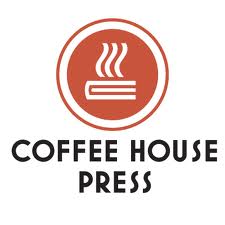 Listener alert! These interviews with independent publishers, documenting their history and experiences, are longer than usual. This one is 53 minutes long. Pull up a chair….
Listener alert! These interviews with independent publishers, documenting their history and experiences, are longer than usual. This one is 53 minutes long. Pull up a chair….
Podcast: Play in new window | Download
Publishing Talks: David Wilk interviews Black Sparrow Press founder John Martin
November 5, 2012 by David
Filed under Publishing History, PublishingTalks
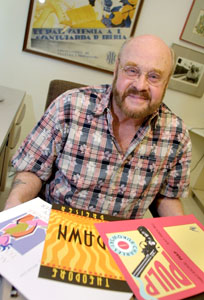 In this series of interviews, called Publishing Talks, I talk to book industry professionals and other smart people about the future of publishing, books, and culture. This is a period of disruption and change for all media businesses. How will publishing evolve as our culture is affected by technology, climate change, population density, and the ebb and flow of civilization and economics?
In this series of interviews, called Publishing Talks, I talk to book industry professionals and other smart people about the future of publishing, books, and culture. This is a period of disruption and change for all media businesses. How will publishing evolve as our culture is affected by technology, climate change, population density, and the ebb and flow of civilization and economics?
I hope these Publishing Talks conversations will help us better understand the outlines of what is happening in publishing, books and reading culture, and how we can ourselves both understand and influence the future of books and reading. Over the past couple of years, I’ve been talking to a wide variety of people in the book business, mostly about the future of writing, publishing, and reading. But the future is always built on what has gone before now. And there has been so much incredibly creative and wonderful publishing work done in recent years, I’ve wanted to share some of the experiences of people who have accomplished so much, with vision, talent and amazing effort.
I’m very pleased and honored to present my interview with John Martin, founder and publisher of Black Sparrow Press for 36 years, from 1966 through 2002. While best known for his discovery and commitment to the work of poet, Charles Bukowski, John was responsible for publishing an incredible range of writers, poets and critics an established a truly historical breadth of work. Black Sparrow books were notably beautiful (all designed and produced by Barbara Martin), and established a singular and unmistakable brand that told readers that they could expect quality books with writers whose work was selected for aesthetic rather than commercial reasons. And on that commitment to quality, Martin built a very successful and profitable business.
When I was a young poet and publisher, I admired no publisher more than Black Sparrow, and I am sure I am not alone among independent publishers in appreciating John’s achievement over such a long period of time. The list of writers and poets Black Sparrow published is incredible, including Robert Duncan, Charles Olson, Robert Creeley, Diane Wakoski, Paul Bowles, Wyndham Lewis, Joyce Carol Oates, Tom Clark, John Fante, Charles Reznikoff, and many, many others.
Martin famously promised to pay Charles Bukowski $100 a month for the rest of his life if he would quit his job at the post office and become a full time writer. What a brilliant and creative gesture. Brave and perhaps foolhardy too, but that single act changed literary history and probably enabled Black Sparrow to become so successful. A great investment, risking one fifth of his personal income to support a writer whose work he loved. Bukowski wrote his first novel, Post Office, and Black Sparrow published it in 1971. As John points out, that book sold forever, along with a number of others, and became the backbone of his business.
Black Sparrow Press was started in 1966 with a single broadside poem. After 36 years of long rewarding hours and hundreds of titles published, John Martin decided the business had changed enough by 2002 that it was a good time to get out. He guessed that the consolidation of retail would spell the end of the golden age of independent publishing, and based on that prescience, sold his most valuable assets, his deals with Bukowski, Paul Bowles and a few others, to HarperCollins’ Ecco Press imprint, and the rest of the inventory (but not the contracts) to fellow independent publisher, David Godine, who renamed the list Black Sparrow Books, and who has continued to publish a fine, though smaller list of books in the Black Sparrow vein.
I recently discovered a wonderful letter written to John by Bukowski in 1986. In it he says “To not to have entirely wasted one’s life seems to be a worthy accomplishment, if only for myself.” That seems a pretty good description of what John Martin did himself and a worthy goal for any of us to aspire to. (You can read the entire inspiring letter at a great site called Letters of Note.)
There’s a really well done history of the press, with quite a bit from John himself, written in 2002 here. The Black Sparrow archive is at the University of Alberta and quite a bit of it can be viewed online. I’ll be posting interviews with a number of other independent publishers over the next few months, in hopes of helping to document what has been and remains an amazing era in American literary publishing. (Warning note to listeners: this is a long interview but hopefully well worth your time. Enjoy!)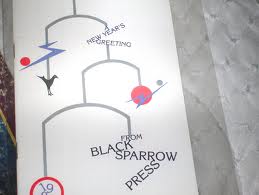
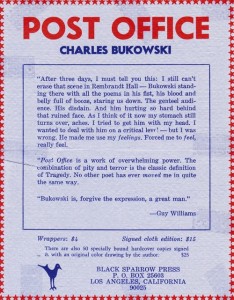 Photograph of John Martin from Metroactive by Michael Amsler.
Photograph of John Martin from Metroactive by Michael Amsler.
Podcast: Play in new window | Download
Publishing Talks: David Wilk interviews Joe Regal of ZolaBooks
September 26, 2012 by David
Filed under Ebooks and Digital Publishing, PublishingTalks, Technology, The Future
 In this series of interviews, called Publishing Talks, I talk to book industry professionals and other smart people about the future of publishing, books, and culture. This is a period of disruption and change for all media businesses. How will publishing evolve as our culture is affected by technology, climate change, population density, and the ebb and flow of civilization and economics?
In this series of interviews, called Publishing Talks, I talk to book industry professionals and other smart people about the future of publishing, books, and culture. This is a period of disruption and change for all media businesses. How will publishing evolve as our culture is affected by technology, climate change, population density, and the ebb and flow of civilization and economics?
I hope these Publishing Talks conversations will help us better understand the outlines of what is happening in publishing, books and reading culture, and how we can ourselves both understand and influence the future of books and reading.
Zola Books is a new and exciting online book selling venture, co-founded by Joe Regal and Michael Strong, both formerly with Regal’s previous venture, literary agency Regal Literary. It’s exciting for many of us in the book business, and hopefully for readers as well, because Zola attempts to solve a wide range of problems that have beset writers and publishers (and often readers as well) in the online book ecosystem. Despite its manifold advantages over the “real world,” there are many things that work well in person don’t work well or at all online.
As Regal says about Zola on the newly launched site:
“There are sites where you can buy books, sites where you can talk about books, and sites where you can read what professional reviewers or bloggers have to say about books. You can hunt down your favorite author’s blog or Twitter feed. But there is no single site where readers, writers, booksellers, reviewers, bloggers and publishers can gather in one place to connect naturally around the books they love. These social connections form in the real world at bookstores, book clubs, and more. Why can’t they happen online?”
Some have called Zola the “anti-Amazon” and so it may be, but it’s as much simply a different idea altogether, as an opposition to Amazon or other online retailers. Zola is simple because it is a book-centric online community, and complex because there are so many elements involved in making a community around ebooks, including the necessity for Zola to build and deploy its own proprietary HTML5-based e-reader.
And there are many ways that Zola can operate in relation to existing entities in the online book environment. There is a strong commitment to independent booksellers and publishers baked into the company’s DNA. Curation and transparency are at the heart of the Zola model. And because Zola is essentially a portable e-bookstore, it can be used as an add-on by existing bricks and mortar bookstores as well as authors and publishers themselves, but Zola also allows them to have their own page on the Zola site, so mutuality is built into the structure from the beginning.
I talked to Joe Regal (at his office in New York City, so you will occasionally hear the sounds of the city in the background) in August, about a month before Zola’s mid-September soft-launch. Now live, we can expect the site to grow and change as users and participants begin to understand how to work within its structure, and provide feedback to the founders and staff to make it work better for them. During a season when major players like Apple, Amazon, Google, and Barnes & Noble are focusing on new devices and display features, Zola aims to create and sustain relationships between readers and writers through the mediation of a powerful and supportive ecosystem that focuses on the book over devices. Here’s hoping for a giant success for a venture that looks and feels right for the publishing community.
While pursuing a career as the lead singer of the rock band RAMA, Joseph Regal got his first job in publishing at the Russell & Volkening Literary Agency in 1991. There he worked with Pulitzer Prize-winning bestselling authors Anne Tyler, Eudora Welty, Annie Dillard, Howell Raines, and Peter Taylor, as well as Tony Award-winner Ntozake Shange, Nobel Prize-winner Nadine Gordimer, and TV anchorman and novelist Jim Lehrer. After leaving music for publishing, he founded Regal Literary Inc. in 2002, and now ten years later, Zola Books (take a look at the About Zola page here.)
I am very interested in seeing how Zola develops and am looking forward to participating as a publisher, writer and reader. Alert to listeners, this interview is 40 minutes long, slightly longer than our usual podcast.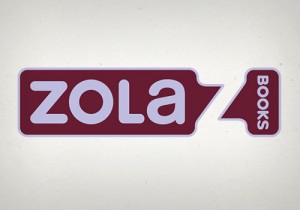
Podcast: Play in new window | Download


